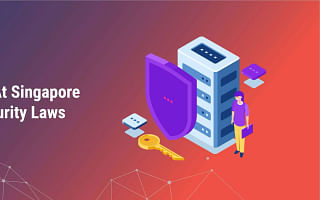Dean Reilly is a seasoned professional in penetration testing and ethical hacking. His unique methodology in uncovering security vulnerabilities has led to numerous organizations bolstering their cybersecurity measures. Dean strongly advocates for the dissemination of knowledge and frequently shares his insights on ethical hacking.
At HackerDesk, we understand the importance of keeping your devices and accounts secure in today's digital world. With the increasing prevalence of hacking attempts, it's crucial to take proactive measures to protect yourself. In this guide, I'll share some cybersecurity best practices and practical tips to help you safeguard your devices and accounts from continuous hacking.
1. Use Strong and Unique Passwords: One of the simplest yet most effective ways to protect your accounts is by using strong and unique passwords. Avoid using common passwords like "123456" or "password." Instead, create complex passwords that include a combination of uppercase and lowercase letters, numbers, and special characters. Additionally, use a different password for each account to prevent a single breach from compromising multiple accounts.
2. Enable Two-Factor Authentication (2FA): Two-Factor Authentication adds an extra layer of security to your accounts by requiring a second form of verification, such as a code sent to your phone or a biometric scan. Enable 2FA whenever possible to prevent unauthorized access even if your password is compromised.
3. Keep Software and Operating Systems Updated: Regularly updating your software and operating systems is crucial for maintaining security. Updates often include patches for known vulnerabilities, making it harder for hackers to exploit them. Enable automatic updates whenever possible or regularly check for updates manually.
4. Be Wary of Phishing Attempts: Phishing is a common tactic used by hackers to trick users into revealing sensitive information. Be cautious of suspicious emails, messages, or links that ask for personal or login details. Always verify the sender's identity and avoid clicking on suspicious links. If in doubt, contact the organization directly through their official website or phone number.
5. Secure Your Wi-Fi Network: Ensure your home Wi-Fi network is secure by using a strong password and encryption. Change the default router password and use WPA2 or WPA3 encryption protocols. Avoid using public Wi-Fi networks for sensitive activities, as they may be vulnerable to hacking attempts.
6. Regularly Backup Your Data: Backing up your data is essential in case of a hacking incident or device failure. Regularly backup your important files and store them securely, either on an external hard drive or in the cloud. This ensures you can recover your data even if your devices are compromised.
7. Be Mindful of Social Engineering: Social engineering is a tactic used by hackers to manipulate individuals into revealing sensitive information. Be cautious of unsolicited requests for personal or financial information, even if they appear to come from a trusted source. Verify the authenticity of such requests through alternative means of communication.
Remember, cybersecurity is an ongoing process, and staying informed is key to protecting your devices and accounts. Stay updated with the latest security news and consider regularly educating yourself about cybersecurity best practices. At HackerDesk, we're committed to providing you with the knowledge and resources you need to stay secure in the digital world.




















